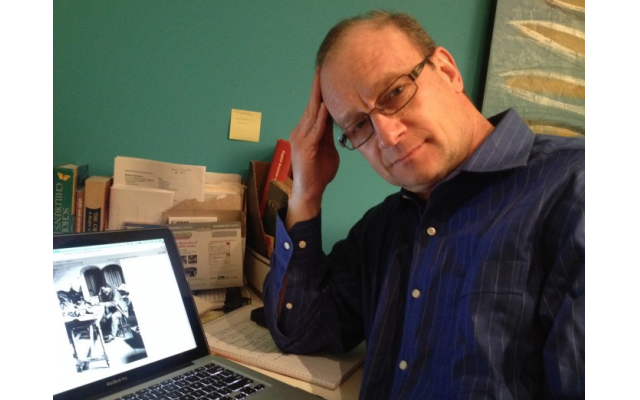Choose Your Own Jewish ‘Seven Dirty Words’
The challenge is to identify values being lost and topics worthy of more discussion in the Jewish community.
Dave Schechter is a veteran journalist whose career includes writing and producing reports from Israel and elsewhere in the Middle East.
On her recent visit to Atlanta, New York Times op-ed writer and editor Bari Weiss offered her version of “seven dirty words” in the Jewish community.
These words, Weiss said, represent either values being lost or issues not being discussed sufficiently.
In the order she presented them, they were: peoplehood, empathy, loneliness, chosenness, the East/mizrach, occupation, and power.
Addressing the Jewish National Fund’s annual Jack Hirsch Memorial Breakfast, Weiss said that she could have picked other words – and mentioned pride, Zionism, intermarriage, and Jewish literacy – and that the audience probably could come up with their own lists.
Your columnist herein offers his choice of seven words – and declines to apologize in advance for any generalizations that may be taken personally.
Civility: I read the comment sections after articles in Jewish publications and never fail to be astonished by the name-calling, snark, accusations of being a self-hating Jew, and suggestions of reckless naïveté. Never mind that the vitriol is not a successful tool of persuasion (though that probably is not the user’s objective).
Respect: Israeli politicians and government officials routinely show the back of their hands to non-Orthodox Jews on such matters as religious identification and marriage. Politically liberal Jews look contemptuously at those whose definition of Jewish values may not fit their progressive mold. Politically conservative Jews deride liberals as being enemies of the Jewish people and endangering Israel.
The divide: I cannot improve on these words from Alana Newhouse, editor-in-chief of the online magazine Tablet (in an interview with the Israeli newspaper Haaretz): “American Jews assume they are important to Israel and Israelis, but they may not be. In fact, there is an argument to be made that Israelis assume Israel should be important to American Jews. But if Israel decides to be, in many ways, a country that blocks the ability of American Jews – rightly or wrongly – to find meaning there, then it’s very presumptuous to imagine that American Jews should care about Israel.”
Education: Would more parents choose a Jewish education for their children if it was free? Schools with scholarship programs and, of course, their donors, are to be commended. But if (as often stated) education is the critical factor in the future of American Jewry, maybe the top priority for fundraising and allocation should be a Jewish education at no cost. Yes, that might mean less money sent to Israel and other international programs or slowing the pace of brick-and-mortar projects.
Intersectionality: This theory, developed in academia and popular on the left, links the struggles for rights by one group with the struggles of other groups. In practice, it has presented liberal Jews with a dilemma (Should I stay or should I go?) when they are made to feel less welcome in coalitions on issues they support if they express pride in their Jewish identity and display any affection for or support of Israel (no matter how actively they may oppose its current government).
Mental health and substance abuse: Still, the stigma persists; still, insurance benefits are insufficient; still, too many feel no choice but to remain silent. Beyond the individual suffering are families that often lack the knowledge of what resources are available and the financial ability to pay for the necessary care and treatment. The turnout and personal stories heard at a Jewish community meeting on this subject earlier this year made it clear that these issues are more widespread than some may choose to believe.
Pay the piper: A local rabbi recently made a point of telling me that even though he reads the Atlanta Jewish Times online – and does so for free – he pays for a subscription. This community benefits from having an independently owned newspaper. But journalism – Jewish or secular – is not a charitable enterprise. If you’re reading this column online, for free, be like the rabbi – pay for a subscription. (Your columnist, a freelancer, thanks you.)
Like Weiss, I could have selected other words, such as inclusiveness, white and patrilineal.
So, what would be your “seven dirty words” in the Jewish community?




comments